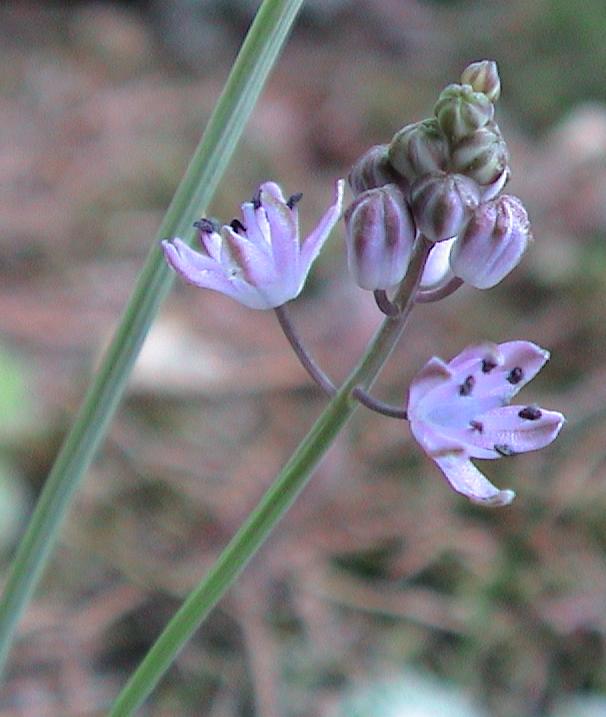The first paper of Pedro Lanzas’ doctoral thesis has been published in Evolution. In it we analyze the transmission of a B chromosome in the bulbaceous plant Prospero autumnale, also known as Scilla autumnalis, the autumn squill.
B chromosomes have been reported in about 15% of eukaryotes, but long‐term dynamics of B chromosomes in a single natural population has rarely been analyzed. Prospero autumnale plants collected in 1981 and 1983 at Cuesta de La Palma population had shown the presence of B chromosomes. We analyze here seven additional samples collected between 1987 and 2015, and show that B frequency increased significantly during the 1980s and showed minor fluctuations between 2005 and 2015. A mother–offspring analysis of B chromosome transmission, at population level, showed significant drive on the male side (kB = 0.65) and significant drag on the female side (kB = 0.33), with average B transmission rate being very close to the Mendelian rate (0.5). No significant effects of B chromosomes were observed on a number of vigor and fertility‐related traits. Within a parasite/host framework, these results suggest that B chromosomes’ drive on the male side is the main pathway for B chromosome invasion, whereas B chromosome drag on the female side might be the main manifestation of host genome resistance in this species. Prospero autumnale thus illuminates a novel evolutionary pathway for B chromosome neutralization by means of a decrease in B transmission through the nondriving sex.

Lanzas P, Perfectti F, Garrido-Ramos MA, Ruíz-Rejón C, González-Sánchez M, Puertas MJ, Camacho, JPM (2018).
Long-term monitoring of B-chromosome invasion and neutralization in a population of Prospero autumnale (Asparagaceae).
Evolution 72: 1216–1224
![]()
